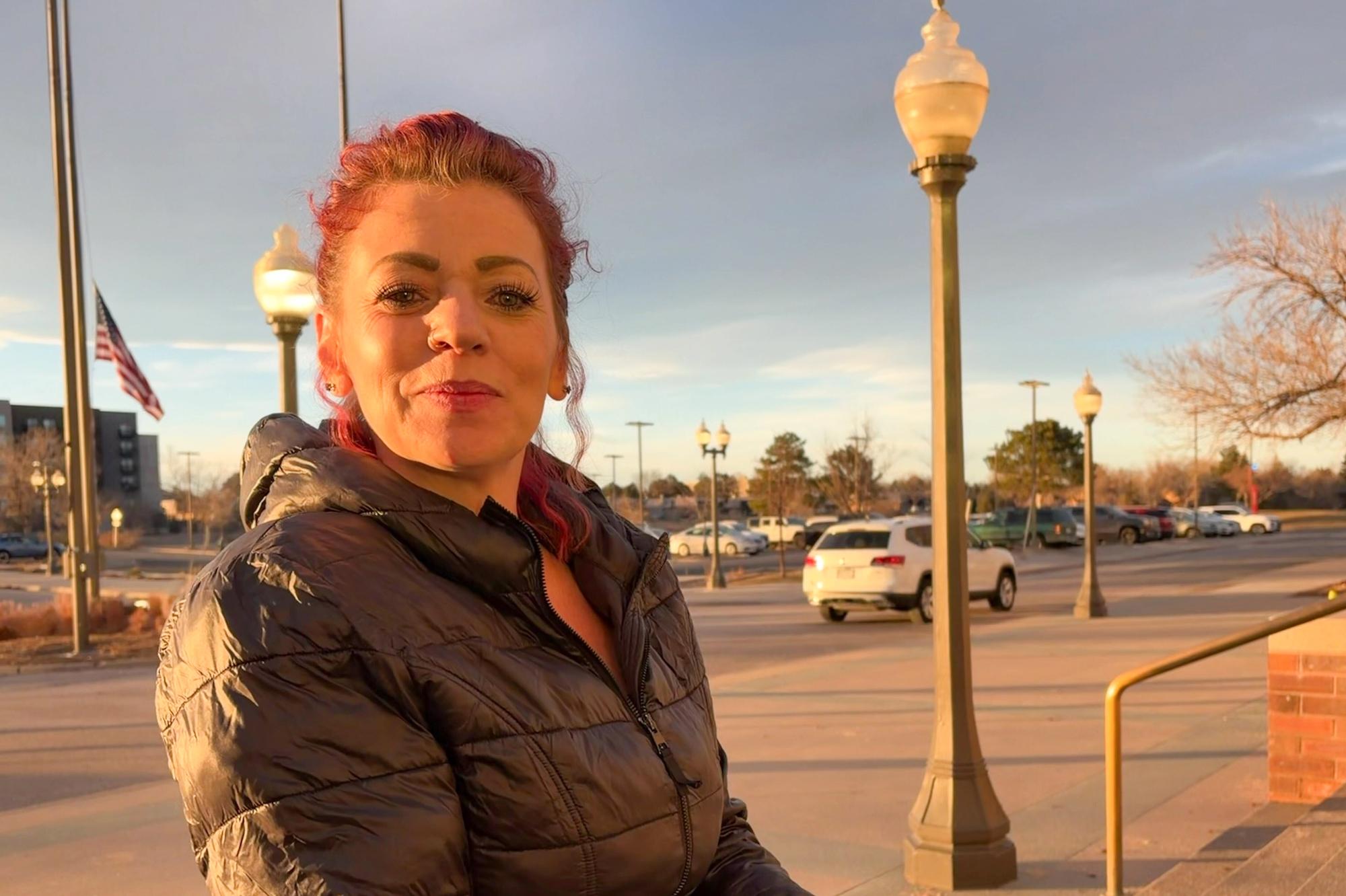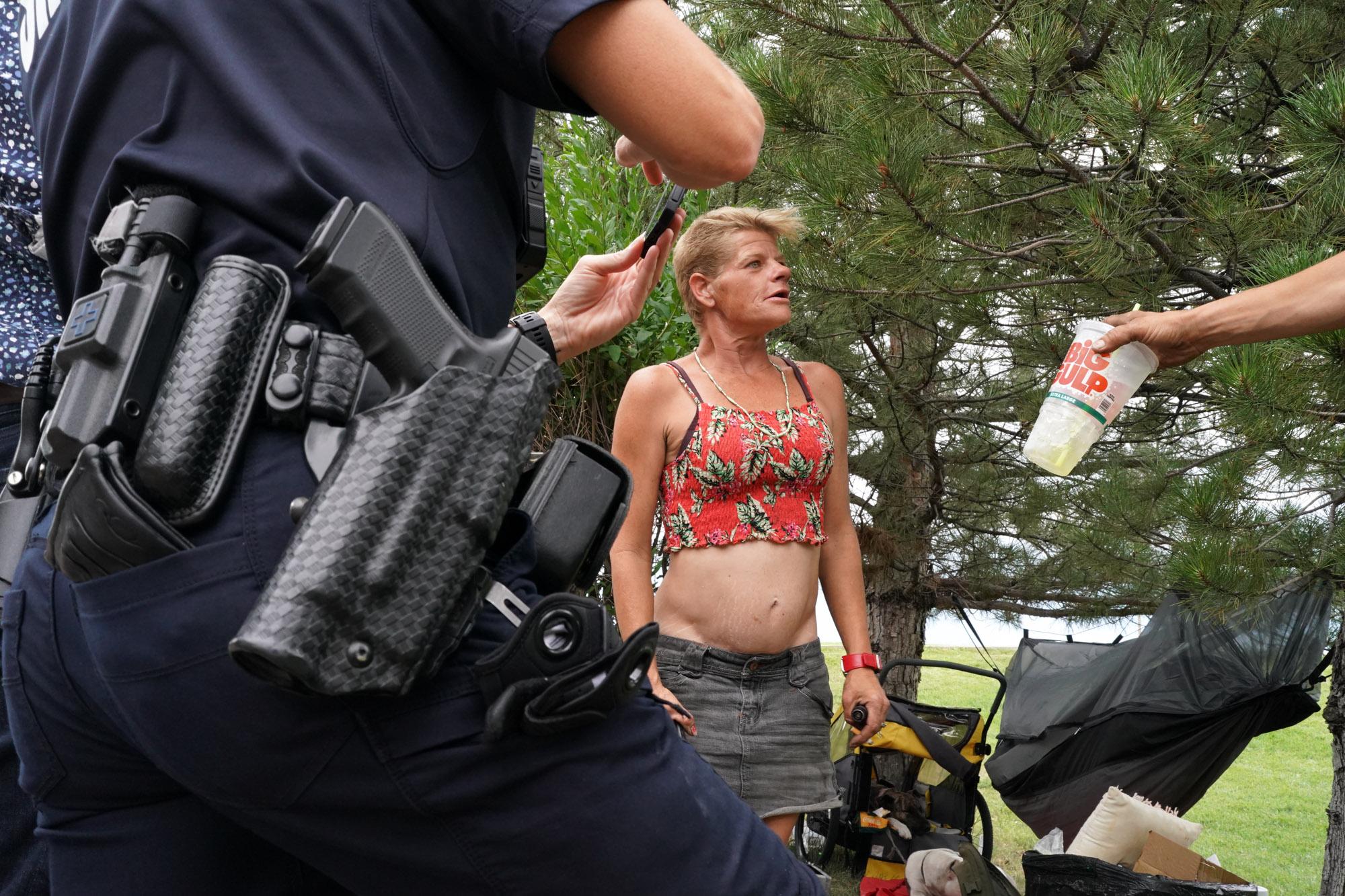
On a recent weekday afternoon, Douglas County deputy Tammy Bozarth climbed into her black, unmarked Chevy Tahoe and looked over a computer dispatch screen mounted on the dashboard.
There was already a call waiting for her: “It appears that there are two subjects and a dog camping out” by a 7-Eleven near Lone Tree, she explained.
The spot was more than 10 miles away, but she decided to respond. It was exactly the kind of assignment that has become Bozarth’s specialty. She is the first deputy ever assigned specifically to deal with homelessness in this wealthy, suburban county south of Denver.
The creation of the new position is part of a larger response to the small but growing presence of people camping along the medians and greenways of towns like Parker and Castle Rock.
There are fewer than 100 people living without shelter in the sprawling county, compared to thousands in Denver, according to the latest estimates. But tents and camps have started to appear for the first time over the last few years, according to county leaders. And Bozarth’s job is part of a fledgling — and controversial — effort to respond.
Some days, the calls to the sheriff start piling up before 6 a.m. as people jog the greenways or check their doorbell cameras.
“It’s a very active county,” Bozarth said. “And if they see somebody that doesn’t look familiar, that isn’t supposed to be in that neighborhood, they’ll call us in (about) a suspicious person.”
Residents have also been calling their elected leaders and demanding action. But as Bozarth’s stop in Parker would show, the county’s options are limited for now.
Few resources to offer
When Bozarth arrived at the call, she found several other deputies already waiting in a grassy median. Nearby were two people, two dogs, and a bike trailer nestled in the shade of a tree alongside a rushing four-lane road. Bozarth introduced herself.
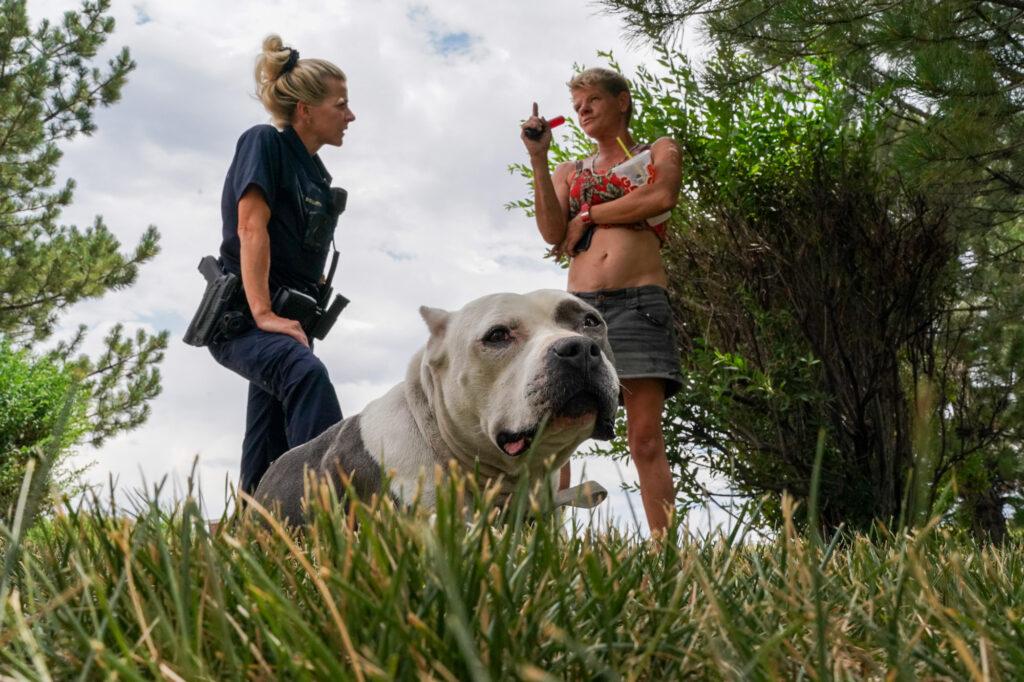
“So where do you guys live? Do you have an encampment somewhere else?” she asked the couple. No, they just “kind of bounce around,” one told her.
“Do you need resources?” Bozarth asked — like food, or a place to stay?
Sabrina Morgan, 38, said they did. She and her husband, Konrad Jackson, have been homeless for more than a decade and they know Denver’s services well. But they’re not familiar with Douglas County, they said.
Deputy Bozarth admitted that there wasn't much the county could offer them.
“We just started a homeless outreach team. There’s not a lot of resources within Douglas County,” she told the couple.
That outreach team includes Bozarth and several civilian “navigators” the county recently hired to find people help. Elected leaders also have formed a task force to study the issue, and they’ve considered opening the county’s first year-round homeless shelter.
Residents are angry about plans for a shelter.
The idea of a supportive approach to homelessness is not going over well with some voters in this conservative area — as was obvious at a town hall meeting in June.
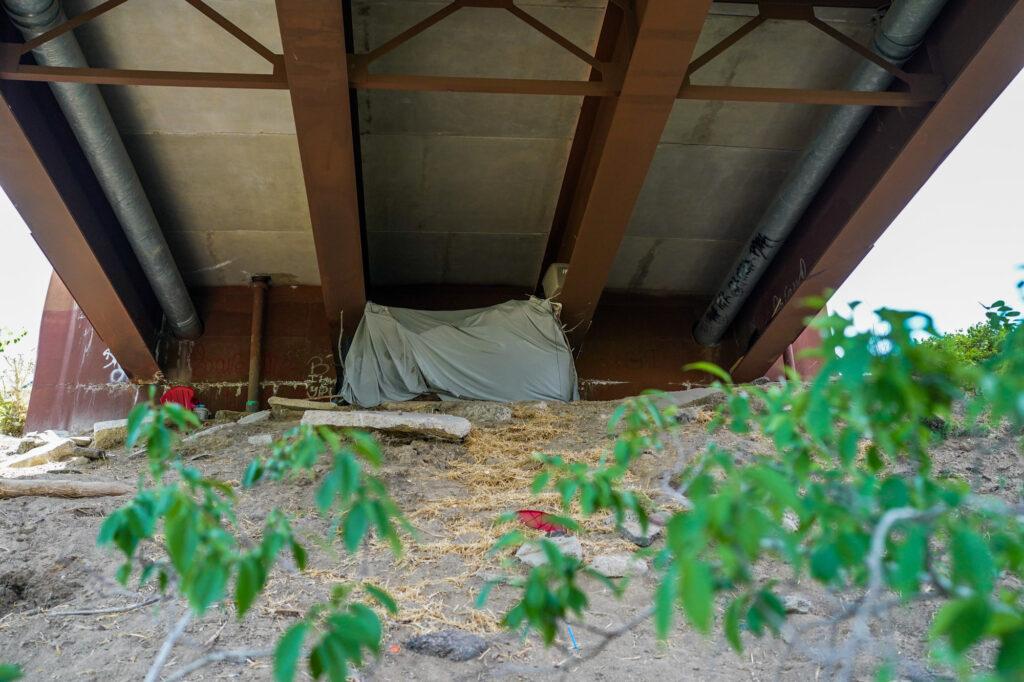
“I live in Douglas County for a reason. I don’t want that crap here. Send it back to Denver,” one man declared.
The big question of the meeting was whether to open a so-called Pallet shelter — housing people in individual temporary structures at a designated location. Aurora opened the first local facility using the company’s shelters last year.
Many who came to the meeting opposed the idea, arguing that offering shelter would attract more people experiencing homelessness to Douglas County.
“We didn’t allow vagrancy 40 years ago. And we shouldn’t allow it now. You weren’t allowed to camp overnight. You were moved. You were told if you didn’t move, you were going to jail,” a woman said to hearty applause.
Before the public comments, county commissioners had tentatively agreed to buy the temporary shelter structures, but the opposition seemed to push one commissioner, George Teal, to back away from the plan, leaving it without enough support.
“We shouldn't have to live with unhoused people in our community when we all spend a lot of money having houses ourselves,” he said the next day, according to The Douglas County News-Press. Teal didn’t respond to an interview request from CPR News. The Pallet idea now is dead in the water, but officials say they’re working on alternatives.
Sheriff Tony Spurlock has emerged as one of the firmest voices against the kind of crackdown approach opponents to the shelter seem to be seeking. He said in an interview it wouldn’t work — financially, legally or ethically — to simply jail homeless people.
“I don't think it's a crime to be homeless,” he said. “The circumstance is just horrible for them in their lives. And so it's not morally right to arrest people, and I don’t think it’s appropriate to create new statutes (aimed at homeless people) ... just so we don't have to create a solution.”
Failing to open a shelter may have consequences
The decision not to open a shelter may actually get in the way of the crackdown that some residents are demanding.
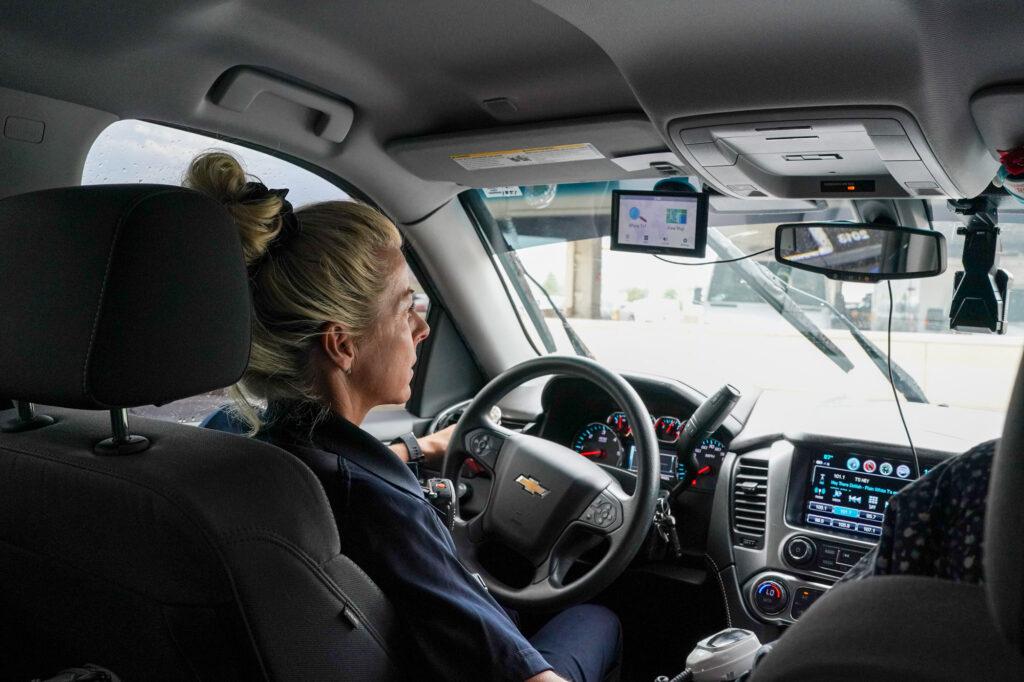
Federal judges around the country have ruled that municipalities can only ban people from sleeping on public property if they have shelter beds available. Those rulings don’t directly apply to Douglas County, but they show that the county might have a hard time defending a camping ban, and would almost certainly face a legal challenge, as has happened elsewhere in Colorado.
Commissioner Abe Laydon has urged his fellow leaders and residents to get on board with a shelter. The county could offer some services without becoming “a victim of our own compassion,” which he said has happened to other cities. He has called for a “compassion, code enforcement and community services” approach, perhaps rebranding the shelter as an “initiative center.”
“We recognize that we cannot have, legally, the code enforcement that our citizens want, without beds in place,” he said in an interview.
Since abandoning the Pallet shelter idea, county officials have begun to work on another plan: expanding a program that currently offers shelter at churches for women and children during the colder months.
In the meantime, Laydon said, there’s agreement on one thing: a new campaign to discourage drivers from giving money to people on the streets.
“We have very compassionate citizens, and in Douglas County they tend to have a lot of resources … and our compassionate citizens want to roll down that SUV, roll down that Lexus window and hand a lot of money out of that car window,” he said. He says that encourages more panhandling.
Local governments accused of 'shoving' homeless people from place to place
An annual “point-in-time” survey this year found about 50 people were living without shelter in Douglas county. The more recent effort in July counted almost 100 unsheltered people, plus several hundred more who are temporarily housed or in detention without a permanent address.
Theories for how — and why — more unhoused people are arriving in Douglas County abound.

The city of Lone Tree is at the end of the light rail line, and county officials say some people may be riding down from other cities. Then, if they are arrested, they might have a hard time finding public transportation near the county jail once they’re released. There’s even a suspicion that police in other jurisdictions may be encouraging people to use public transit to head to Douglas County.
“The northern (law enforcement) agencies are using the light rail like an underground railroad. They’re shoving them all on the light rails, pushing them south. We’re shoving them all on the light rails pushing them north, and we’re playing this tag game,” Chief Deputy Kevin Duffy of the Douglas County Sheriff’s Office said during the town hall meeting.
“Our leadership needs to start working together with solutions so we don’t start ping-ponging back and forth,” he added.
Those kinds of suspicions have fed tensions between local governments, with the mayor of Aurora recently accusing Douglas County of “dumping” homeless people in his city. Denver’s mayor joined in the criticism, too.
Douglas County officials say they’ve done no such thing, but acknowledge they have offered rides to a few dozen people who have personal connections or access to services in other jurisdictions, a practice that’s common in other jurisdictions. They contend that most people experiencing homelessness in Douglas County have roots in the larger cities.
Cathy Alderman, public policy officer at Colorado Coalition for the Homeless, said that the controversy highlights the fact that Douglas County has done little to provide resources to address homelessness — even though high housing costs everywhere are contributing to the nationwide problem.
“It does feel like an avoidance of helping their community members (and relying on) the generosity or the availability of services in other places,” she said. “And doesn’t it scream for a regional approach to homelessness? Why aren’t the (leaders) of all of our counties getting together and saying, ‘How can we coordinate our services better?’”
Why is Douglas County attractive?
Some unhoused people, like Sabrina Morgan and Konrad Jackson, say that coming to Douglas County was no accident. They are seeking the same thing as plenty of other southern metro residents: to escape the problems of city life.
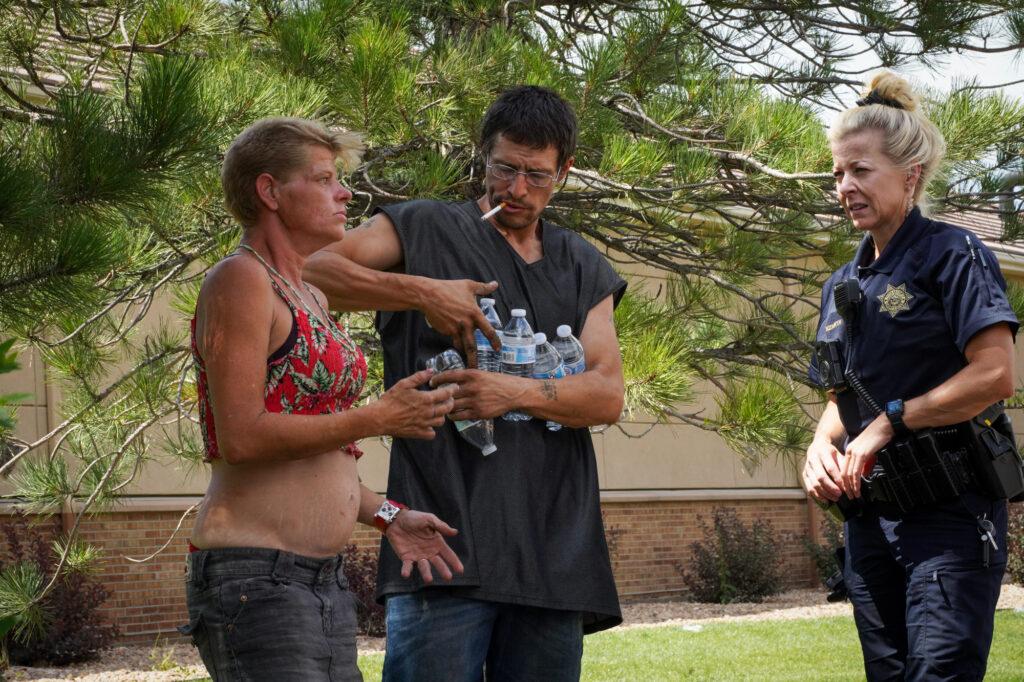
“People have a better chance at recovering from something if they have a lot of space,” Konrad said.
But on the afternoon of his encounter with Deputy Bozarth, that space was proving hard to find. The deputies had checked in with the property’s owner. He hadn’t known the couple was there, but once he did, he wanted them gone. Bozarth let them know apologetically.
The couple took the news calmly and asked if she had any suggestions for where to go next. She had none to share.
“Unfortunately we don’t have any (sanctioned) homeless camps here in Douglas County, otherwise I'd gladly take you there,” she said.
Instead, she gave them her card, urged them to check with the property owner at the next place they stop, and stepped away to give the couple some privacy while they packed up.
“Honestly, to tell you the truth, it doesn’t bother me,” Morgan said as she prepared to pile their belongings in the bike trailer. “I’ve been homeless since I was 16, so it doesn’t bother me.”
Since arriving in Douglas County, Morgan had spent a night in jail on an outstanding warrant, and the couple had their makeshift trailer towed from an RTD lot. But her husband, Jackson, said they still planned to stay a while. And he was “really impressed” with how law enforcement had treated them so far.
He understands, he said, why some people call the sheriff when they see homeless camps around Douglas County.
“Chances are they themselves moved to Lone Tree for a better life, to get away from all the riff-raff and drugs. It’s natural to just want to keep it at an arms’ length,” he said.
But it’s a lot easier to push homelessness away, he added, when you’re not living through it.

